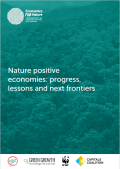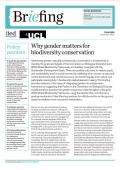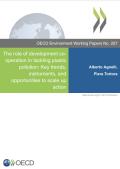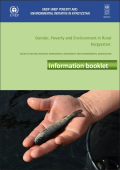
This report highlights the work of the Economics for Nature global partnership, which has pushed for system-wide change to maintain, protect, invest in and restore nature.

This briefing calls on policymakers to prioritize gender-responsive implementation of the CBD's Global Biodiversity Framework, using the Gender Plan of Action as a mechanism, and to integrate gender into budgets.

This report provides a comprehensive assessment of plastic pollution in developing countries and analyses the role that the international development community is playing to support developing countries face this challenge.

This report captures Poverty-Environment Initiative's 2016 achievements, as we gather the fruits of a more than decade-long effort to sow environmental sustainability into the field of development. It graphically highlights the work of the joint UNDP–UN Environment Programme global programme to improve climate resilience of the poorest and to effectively implement pro-poor environment practices and a just transition to a green economy and presents the kernel of a more effective means to achieving the 2030 Agenda for Sustainable Development.

This study concerns as to how to best bring development in ways that would reduce poverty, save natural environment and bring social justice. It explores the following questions: “What are specific areas of inter-linkages among the issues of gender equality, rural poverty, and environmental degradation in the Kyrgyz Republic?” “What are gender implications for sustainable livelihoods in rural Kyrgyzstan?”, and “What are gender-differentiated impacts of environmental degradation in Kyrgyzstan”
